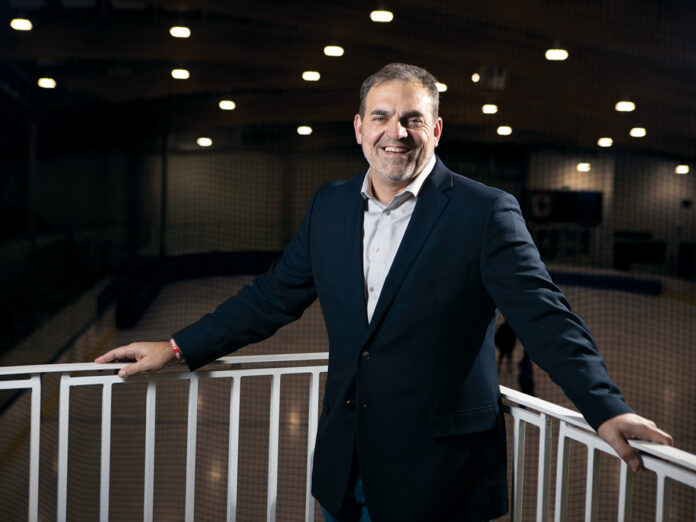
There’s a word we like to use, and it’s progress – did you make progress today? It’s about progress, not perfection,” said Bob Wilkie, former professional hockey player and founder of I Got Mind, an organization devoted to promoting mental health in sport.
If anyone knows about progress, it’s Wilkie. A Calgary native and former NHL player, Wilkie is all too familiar with the pressure and expectations that can come with life and specifically with playing sports. Sensitive as a young boy, Wilkie recalls the pressure to be perfect, to ignore how he was feeling, and just to perform when he was as young as ten years old.
“You play, and you play well, or you don’t play at all,” he said, explaining the hockey mentality.
The all-or-nothing mindset of some coaches forced Wilkie to bury his emotions rather than address them. Years of repressed feelings, high expectations, and the pressure to be perfect led him to turn to alcohol and drugs as a means to numb his feelings of anxiety and depression.
A survivor of the 1986 Swift Current bus crash and former player for the infamous coach Graham James, Wilkie quickly developed a label that stuck with him wherever he played hockey – he drinks too much, parties too much, and doesn’t care.
Eventually, he just started to live the label saying “it was easier to fill those expectations” despite having what looked like a successful athletic career ahead of him when drafted by the Detroit Red Wings.
Wilkie recalls a few people who did try to start the conversation with him about his mental health. Unfortunately, he felt unsafe discussing his feelings and feared the judgement of others. He simply didn’t know how to take advantage of the few opportunities that were given to him.
Wilkie fell into a cycle of partying and drug abuse he couldn’t shake – from team to team, the cycle would reappear, and everything would fall apart again.
“I couldn’t figure out why this pattern just kept going on and it was because of me,” he said.
It wasn’t until Wilkie’s daughter was born that he saw himself through a different lens.
“For the first time in my life, I really experienced what love is,” he explained.
New responsibility and love for his daughter finally started Wilkie on his healing journey. It was a twenty-year process and something that required total commitment.
“So many people are looking for a quick fix instead of being prepared to do what really needs to be done – and that’s to take a long hard look in the mirror and identify the things that need to happen to make them whole again.”
While Wilkie made progress with his mental well-being, he couldn’t ignore the same patterns of promoting anxiety and depression that were prevalent in sports and felt compelled to do more. He completed his life coaching certificate where he learned how to take his own experiences and stories and put them into teachable contexts. He discovered more and more youth wanted an opportunity to talk and were looking for the tools to support their mental health.
In 2008 Wilkie founded I Got Mind – an organization committed to promoting the importance of mental health in the sporting world. I Got Mind has travelled across the country talking to youth, coaches, and parents all to promote mental health. He recently spoke at the Distress Centre in Calgary, sharing his story. It is an organization that could have helped him if he had been able to reach out.
“Being asked to speak was a great honour,” Wilkie said. “I have been in those places personally with mental health where I felt like [suicide] was the best option and now, after the healing, I have an understanding of how I got there.”
Wilkie is a believer in sharing stories and committing to progress. He says that while we talk about mental health more today, we still seem to be missing the critical education needed.
“The power of the movement is fantastic,” Wilkie exclaims. “The problem is there is not enough education out there for what it means and how they need to do things differently. It’s learning a whole new skill set.”
Along with the rest of the team of passionate athletes and mental health experts at I Got Mind, Wilkie continues to share his story of hope, and offer resources both in-person and online for athletes, coaches, and parents.
Lead image by Britton Ledingham















